At 100 years, life is still an adventure
“Look at all that snow. Isn’t it beautiful?” Mom says from the passenger seat. I am driving across I-90, the chiseled Cascades rising ahead and Mt. Rainier floating on the southern horizon like a huge scoop of blackberry-marble ice cream. We admire this stellar view in silence. She doesn’t have to say what usually comes next. I already know how she wishes she could still ski – a sport she finally, reluctantly gave up at age 80. Her husband, Chet, no longer had the leg strength to power his turns down the slopes. When her skiing partner retired, so did she. But quitting the sport did not mean she stopped seeking adventure.
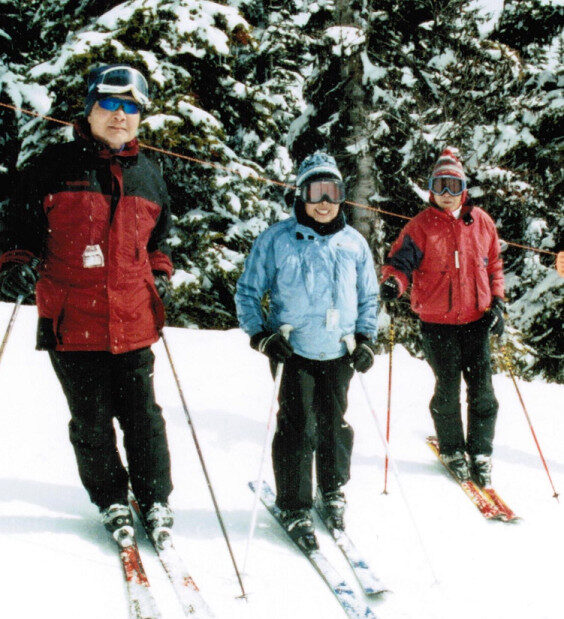
A year after dad passed away in 2012, Mom flew with the family to Maui. There, she experienced an exciting, colorful world underwater, learning how to snorkel for the first time ever at 88 years old. At age 90, she paddled on her first whitewater rafting ride in Colorado. A few years later, she learned how to paint with watercolors.
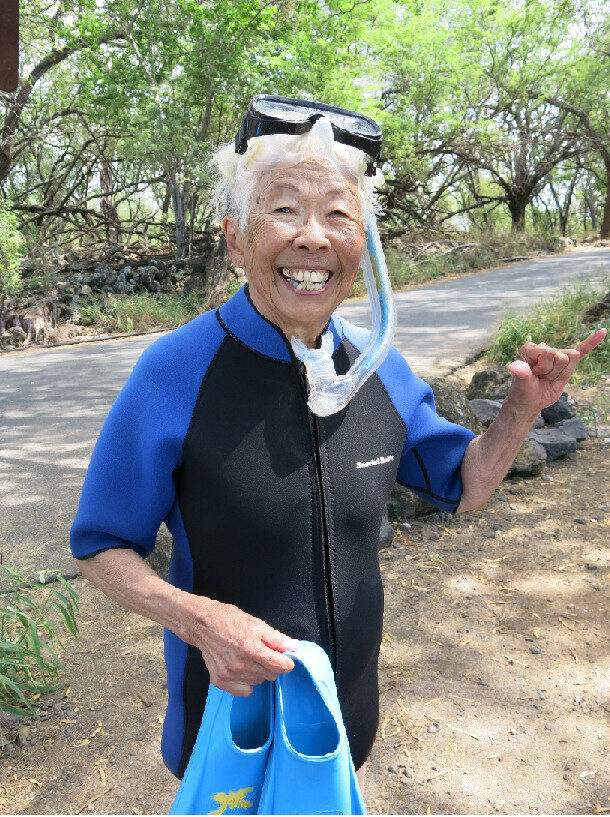
Her gusto for life, along with a good sense of humor, strength in the face of adversity and a big heart are the qualities that have helped steer Marti (Fukuma) Murakami through a life that will span 100 years this May.
Perhaps her spunk is rooted in being the daughter of immigrants.
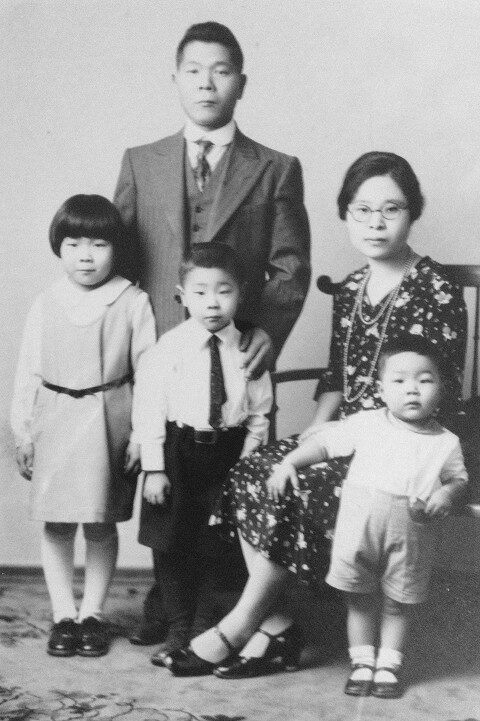
Martha Masako Fukuma was born and raised in Seattle. Her father traveled here from Japan in about 1920 to find work. Eventually he arranged a marriage back home to a woman, who was 15 years younger. At age 19, his bride set sail from Japan, heading for a new country and a new life among people who spoke a different language than her. She left behind her sisters and parents, never to return. Soon after arriving in Seattle, Marti’s mother attended a school to learn patternmaking. That, plus her sewing skills, helped her become a dressmaker. Women would come to the house to show her a picture of a dress they desired, and she would get busy drafting the pattern and cutting fabric. I still remember Mom taking us kids to grandma’s house and how grandma would hang the beautifully stitched dresses for her customers from coat hooks in the entryway of their home. The women would “oooh” and “ahhh” as they came to pick up their custom-made clothes.
Marti’s father held numerous jobs as handyman, dishwasher, cook and construction worker. He was able to put a down payment on a house (under Marti’s name because it was illegal for non-citizens to own property) but it wasn’t until after the war that they could afford a car.
Her earliest memory took place when she was about five years old, playing in the coal bin under their porch with a neighbor boy. They’d found some matches, and he lit one, blew it out (or so he thought) and tossed it behind her. But the match was still alive and caught her dress on fire. Marti panicked and ran through the house to find her mother, who grabbed her. She managed to tear off Marti’s dress, then threw it into their coal stove. Marti still has burn scars to remind her of the dangers of playing with fire.
Her family, including two younger brothers Kay and Mike, lived in a house on South Washington Street in Seattle. On that same block was a shelter run by the Salvation Army, and small businesses including a family-run grocery store, dry cleaner and brothel. Marti says the madam at the brothel let the kids pick cherries from the trees in the back yard. She also recalls taking tap dance lessons at a nearby church and performing with her friends for the neighbor kids on their back porches.
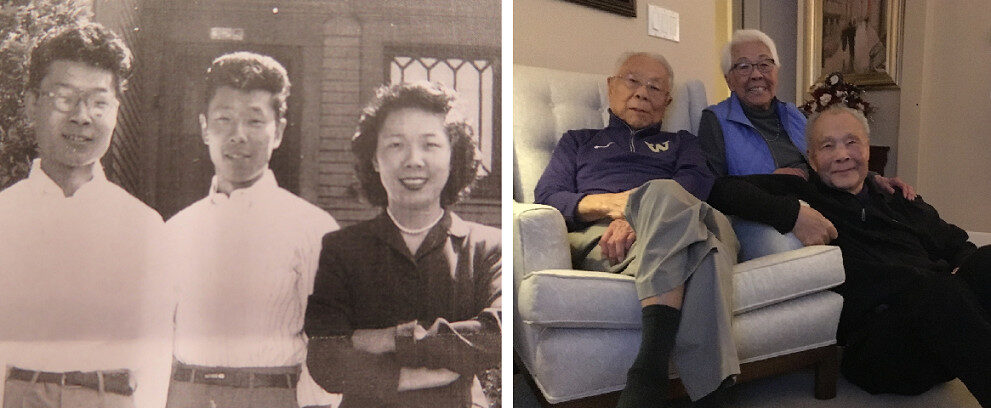
Marti describes herself as a tomboy, and her group of friends explored the city on foot, by bus and on roller skates. They often strapped metal skates onto their shoes and would take off. Once, Marti was rolling down a hill at a good clip when her skate hit a gap in the sidewalk that sent her flying. She came down hard and chipped her front tooth.
Marti eventually attended Broadway High School, a campus that became part of what is now Seattle Central College. The family moved to another house and, as with many of her Japanese American friends, Marti was still attending Japanese Language School to advance her speaking and writing skills. She had started in 3rd grade and continued with the schooling after her regular studies.
But life as she knew it abruptly veered off course in 1942, just as she turned 17. After Japan’s surprise attack at Pearl Harbor, President Franklin D. Roosevelt signed Executive Order 9066. This action made way for the incarceration of 120,000 people of Japanese descent, about two-thirds of whom were U.S. citizens by birth.
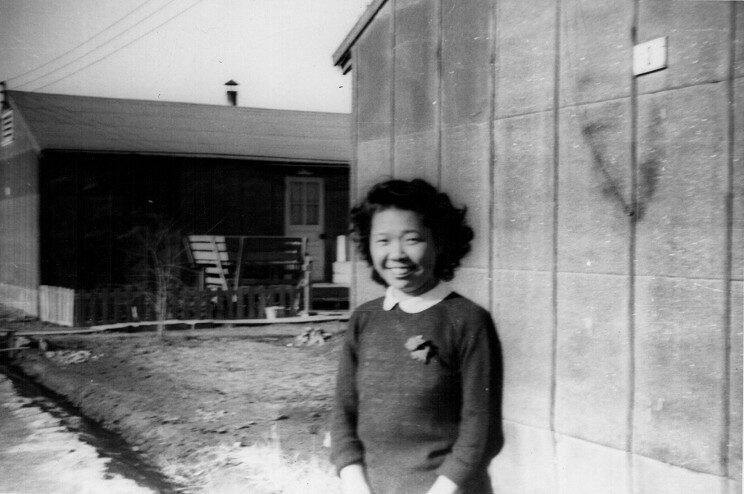
She remembers her family burning all their books that were written in Japanese in the wood stove, fearing what could happen if the FBI came to visit their home.
Among the many challenges they faced under evacuation orders, Marti and her family counted themselves among the more fortunate. Many lost their homes when forced to sell at brutal discounts prior to having just days to disposition property and all items they could not take with them. A real estate agent offered to rent out their home and her father agreed to the deal. Every month, a small rental check was deposited into their bank account.
Incarceration for the Fukuma family meant they ended up at Minidoka, in the middle of nowhere in Idaho. The concentration camp was surrounded by barbed wire, armed guards and desolate land that baked under the searing sun in summer and froze in winter. Privacy and the comforts of home meant nothing here. Yet in spite of their grim situation, Marti quickly made friends with other young women she met. They played baseball, attended (and graduated) high school within Minidoka and worked in the mess hall serving food. These were friendships that would last a lifetime.
After the war, Marti’s family returned to Seattle where they were able to resume living in their house. Although the broader community did not welcome the Japanese Americans back into their neighborhoods, the snowy slopes of the Cascade Mountains beckoned. A friend asked Marti if she wanted to try skiing. Back then, her brother Kay would drive them to the station downtown so they could catch a train to what was then called the Milwaukee Ski Bowl, later renamed Hyak and now known as Summit East at Snoqualmie. There, she learned to ski. At the time, she probably didn’t guess that it would become a sport she would enjoy for many decades. Rokka, a ski club that had formed in 1936 to encourage local Japanese to learn how to ski, was reestablished in 1950. That year, Marti served as the club Secretary. “But I don’t think I ever took any notes,” she jokes.
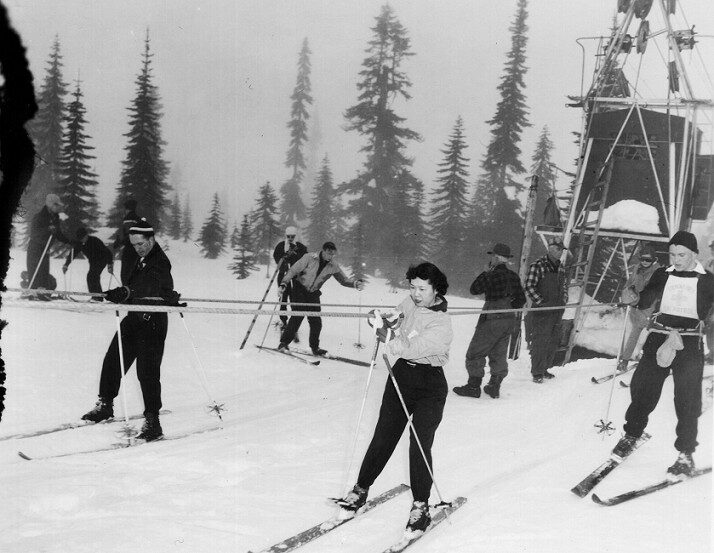
In 1953, she married Chet Murakami, a mechanical engineer, who started working at Boeing and spent the rest of his career there for more than 35 years. Together they had three children, Lynne, Debbie and Rich.
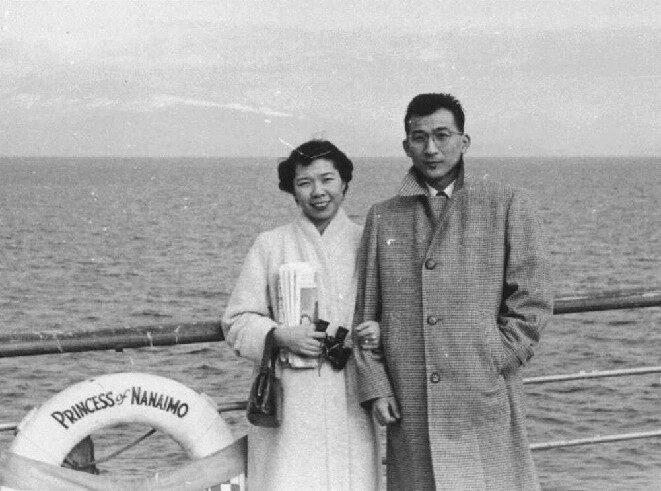
Over the years, Mom and Dad skied once a week during winter and often took ski trips with groups of friends. Dad taught ski lessons for Rokka and became the ski school’s Technical Director. In the summer, Mom and Dad fished for salmon from their boat on Puget Sound. Although Dad was considered the fisherman, Mom often teased that she had caught the bigger fish, or caught the only fish while he got “skunked.”
Friendships like those she formed at Minidoka are what nourished Marti through life and all its ups and downs. She and her friends took turns hosting luncheons or sometimes they met at a restaurant. Dad would complain they’d “gab” all afternoon. Or one of her friends would call and she’d forget about the boiling pasta water on the stove. Dinner would be late that night. These women were there for each other over the years as they raised families, took jobs, lost loved ones and gained grandkids.
Mom’s big heart has always been her super power. As we kids grew up and formed friendships, got married and inherited new in-laws, she’d welcome newcomers into the fold and make room for her growing “family.” Everyone was included and could feel like this was home. She had two full sets of her formal dinnerware and sometimes ran out of dinner plates when she hosted a party. She never lectured us about family, but instilled the value of building strong bonds by showing us how it’s done.
Today, as she stares wistfully out the car window at the mountains, I want to squeeze her hand and say I know. I know the feeling of freedom when you make fresh tracks in deep powder. I know we respect the brute force of nature when conditions on the mountain are harsh, but we keep going. I know the fear of facing downhill and letting your skis take you down the steep hill because you make yourself do what’s hard – it’s a great feeling of accomplishment. Mom, I don’t blame you for missing the slopes, but what a run it has been for 100 years! You’ve been an inspiration to your children, grandkids, great grandkids, extended family and friends. Your life is rich because time after time, you open your arms and embrace the world around you.















